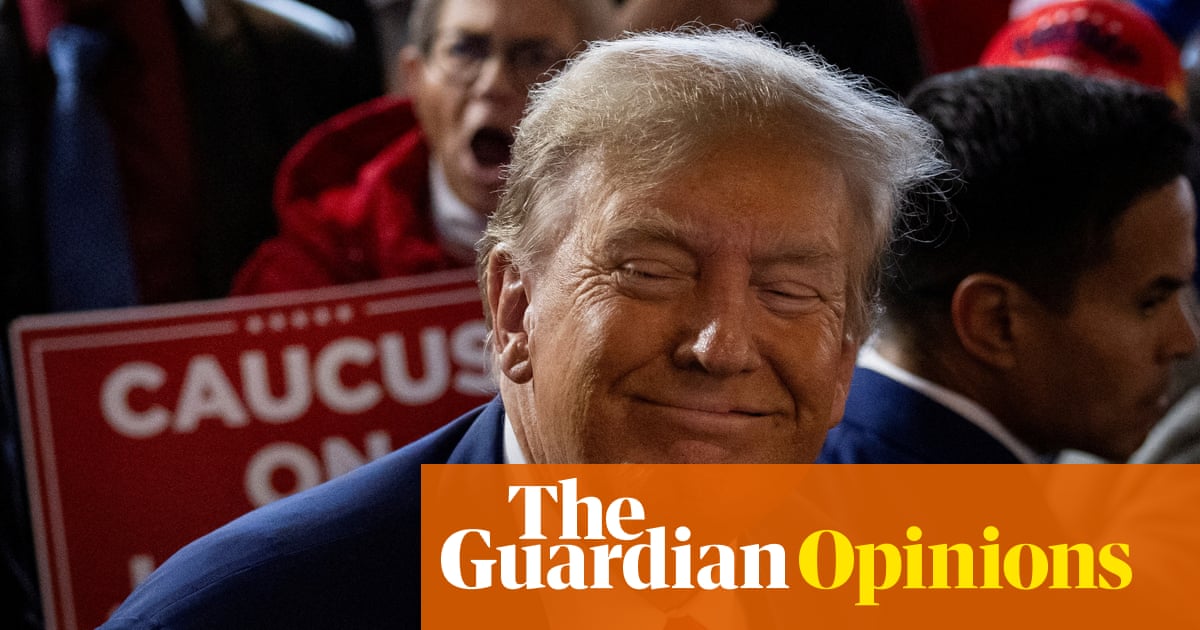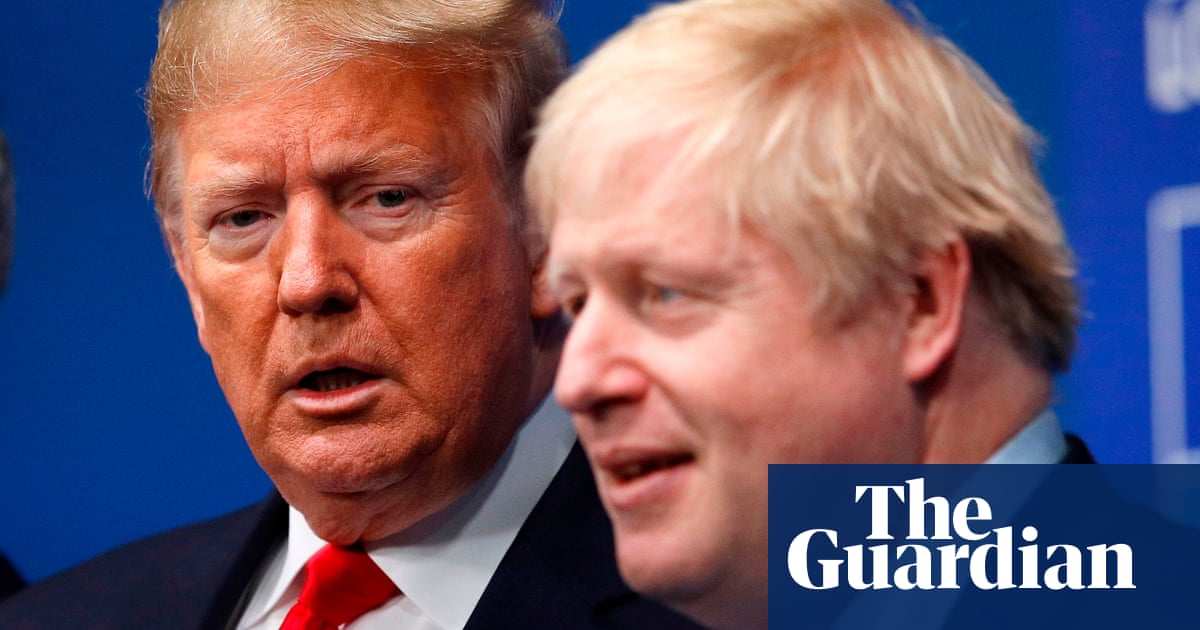
It is not a prediction, but it is a possibility – and a growing one. Barring a major upset, Donald Trump is on course to be the Republican nominee for US president. If he wins that contest, which begins in earnest in Iowa on 15 January, then polling in the handful of must-win, battleground states suggests he has a better than even chance of beating Joe Biden in November. Of course, much can change between now and then: once voters’ minds are concentrated on the looming prospect of a Trump return, many might recoil. All the same, Americans need to prepare themselves now for a second Trump presidency – and so does the rest of the world.
A good first step will be shedding any illusions that the sequel would simply be a repeat of the original. Trump 2.0 will be more focused and more capable than the initial iteration. In January 2017, he was a novice, new to Washington, new to political office and clueless as to the machinery of government. He relied on appointees who could, and often did, thwart his crazier, darker impulses – even if that meant swiping key documents from his desk before he had a chance to see or sign them.
Trump is different now. Four years in the White House taught him where the levers of power are and who he needs to push aside to reach them. Next time, he won’t allow himself to be babysat or reined in by assorted appropriate adults: there will be no Rex Tillerson at the state department or James Mattis at the Pentagon. Instead, he will populate his administration with loyalists undistracted by any duty to democratic norms and conventions, committed solely to ensuring Trump’s will is done. Once those informal, unwritten constraints are off, there is little that will stand in his way.
He has been shockingly upfront about this. As early as last summer, Trump aides were briefing their plans for a massive presidential power grab should their boss be re-elected. They promise to bring independent agencies, including those that oversee the media and the internet, or trade and industry, under the direct control of the Oval Office. They will hand themselves the power to fire tens of thousands of civil servants, replacing them with yet more loyalists – eyeing up especially the intelligence and security agencies, rooting out anyone deemed unreliable. In the words of Russell Vought, who served in the first Trump term and is now involved in drawing up plans for a second: “What we’re trying to do is identify the pockets of independence and seize them.”
Team Trump makes no secret of its particular interest in the justice department, ditching the convention that the executive stay out of decisions over who does, and does not, get prosecuted. With judicial independence cast aside, Trump would be able not only to pardon himself and his pals, but to order investigations into his enemies, starting with the Biden family and all those who, he believes, have wronged him – including, no doubt, those state election officials who refused to fiddle the numbers and declare him the winner of the 2020 contest. If that sounds hyperbolic, remember Trump’s stated promise to his supporters: “I am your warrior. I am your justice … I am your retribution.”
Not for nothing is there serious concern in the US that January 2025 could open a new chapter of US authoritarianism, even an American dictatorship – with Trump bent on filling the judiciary and the upper reaches of the military with those whose first loyalty will be not to the US constitution but to him. Perhaps the most telling moment of the primary season so far came last month when Trump was interviewed by major league sycophant Sean Hannity of Fox News. Clearly trying to help, Hannity invited Trump to quash the rumours that he planned to rule as a dictator, abusing power and seeking revenge against his political rivals. “Except for day one,” came the reply. “After that, I’m not a dictator.
So Americans have much to brace for: a Trump presidency with all the darkness, bigotry and corruption of the first, only this time more determined, efficient and ruthless. But it is not only those inside the country who need to gird themselves. The rest of the world must prepare too.
Among the more startling pieces in a collection compiled by the Atlantic magazine under the heading “If Trump wins”, was one by the analyst Anne Applebaum. Her stark prediction: “Trump will abandon Nato.” She makes the persuasive case that even if he does not formally withdraw from the alliance, Trump can render it defunct simply by shaking confidence in its central commitment: that each member come to the defence of any other if attacked. Once the likes of Vladimir Putin conclude that Trump no longer believes in that creed of collective defence, the game will be up.
The immediate casualty of such a shift will be Ukraine. Kyiv has relied on US arms and aid since Russia’s invasion nearly two years ago, an act of aggression whose initial stages were praised by Trump as “genius”. A re-elected Joe Biden would keep that support for Ukraine coming. Under Trump, it would dry up.
Orysia Lutsevych of Chatham House told me that, in that scenario, Kyiv would have to pursue a “totally different war strategy, lowering its ambition from retaking territory seized by Russia to denying Russia the opportunity to take more”. One former high-ranking figure in the US military reckons that “the best we can hope for is that Europe pressures [Volodymyr] Zelenskiy into accepting some form of armistice with Russia that concedes Donbas and Crimea”, along with international security guarantees. He offers that verdict with no enthusiasm: “This is exactly the outcome Putin desires.”
It’s worth spelling out what that means: a Moscow no longer deterred by the threat of Nato, rewarded for its aggression and free to pursue more elsewhere, eyeing up its neighbours and licking its lips. If the US is led by a man who, we already know, grovels to dictators and disdains the US’s allies, other nations will start to recalculate: watch smaller, more vulnerable countries in Asia cosy up to Beijing, as a matter of self-preservation. Some might welcome a Trump-led retreat as the end of US imperialism; in reality, it would merely advance the day when Chinese and Russian imperialism take its place.
None of this can wait. The US’s allies need to prepare now for a change that could well be just a year away. To defend Ukraine without US help will take money and hardware on a scale dwarfing anything Europe has come up with so far. But no less important, the return of Trump will also require deep cooperation, whether on security or the climate emergency, especially among the nations of Europe – and that includes Britain.
The go-it-alone fantasies of the Brexit era were always delusional. In a second Trump era, they would be downright dangerous. An orange storm could be coming – and we need to be ready.
Jonathan Freedland is a Guardian columnist
Join Jonathan Freedland at 8pm GMT on Tuesday 16 January for a Guardian Live online event. He will be talking to Julian Borger, whose new memoir, I Seek a Kind Person, reveals the story of his father’s escape from the Nazis via an ad placed in the Guardian. Tickets available here












